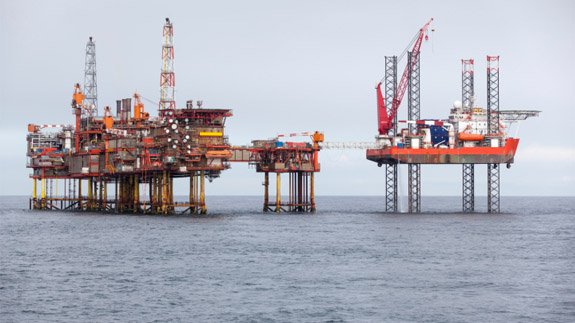Carbon Dioxide Enhanced Oil Recovery (CO2-EOR) could be a “stepping stone” for the UK’s transition towards a low carbon economy.
It could also help balance climate change commitments and fix the situation in the North Sea, according to an academic.
CO2-EOR is a process in which Carbon Dioxide captured from power plants and other industrial sources is injected into an oil reservoir which helps force more oil back out.
Leslie Mabon, Lecturer in Sociology and Applied Social Studies at Robert Gordon University said although CO2-EOR and carbon capture and storage (CCS) are connected, they have their differences.
He told ELN: “The main difference is that CCS in its conventional form, what you would do is inject the CO2 and you wouldn’t bring anything back out, you would purely store the CO2. The difference of CO2-EOR is that we can bring some oil back out with the injection. We can get CO2 for CO2-EOR from places other than Carbon Dioxide capture so we might get it naturally or we might get it produced from somewhere else.
“One of the big challenges at the moment is that it is very costly to set up all the infrastructure for CCS, to build the equipment for the capture site, to transport and inject and that is perhaps perceived as a bit of an economic barrier.”
He added: “CO2-EOR perhaps gives that economic incentive and it also gives you an opportunity to learn more about the geology and science of storing CO2 and how that works in practice… It should be thought of as a transition to proper CCS and not purely a way of extracting more oil.”
Mr Mabon believes the technique can be economically viable but it needs a joined-up policy framework that connects climate change, energy and communities.
He went on: “In the UK we’ve got a couple of issues going on. We have a clear and urgent need to tackle climate change, we also have the reality that we do require oil and especially as well in the North East of Scotland we have a lot of communities that are still very dependent on the extractive industries of oil and gas for jobs and economic benefits and they are really starting to feel the effects of the downturn in oil prices.
“There’s a real opportunity here for the government to maybe use CO2 capture from carbon capture processes, use that to perhaps extract the oil that we still need in our society in a more sensitive and controlled way and at the same time give a more gentle managed transition away from fossil fuel dependency.”





